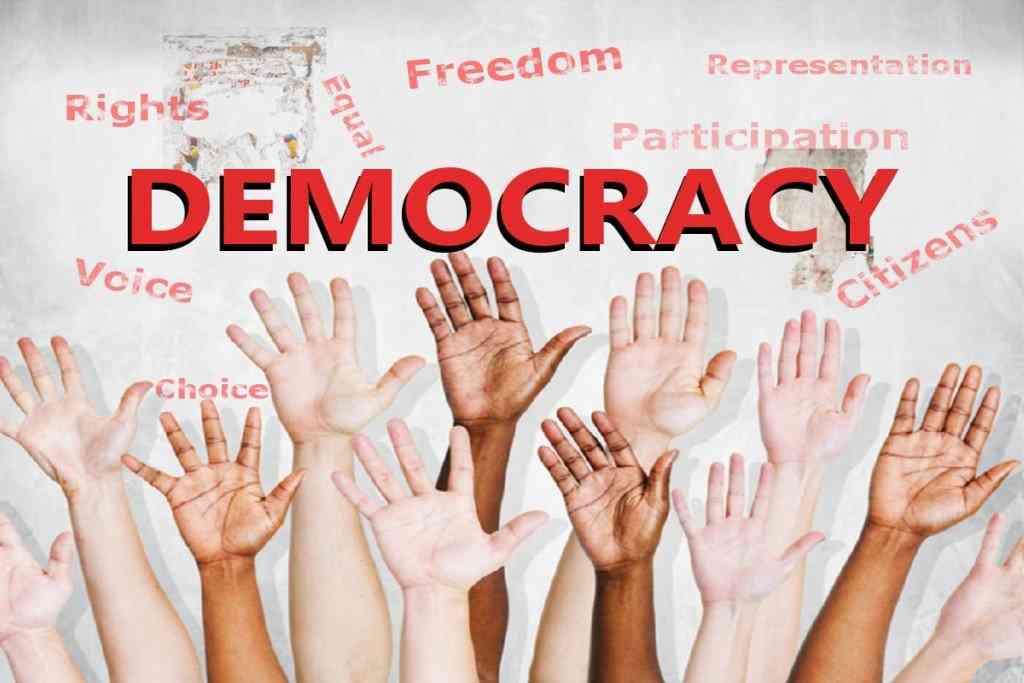
IN an era marked by rapid globalisation and shifting power dynamics, the principles of democracy, democratisation and free and fair elections are fundamental to the sustenance of effective governance.
Recent events on the global stage have raised concerns about the state of democracy and the double standards employed by powerful nations when assessing the legitimacy of elections.
This article emphasises the need for independent election bodies and the challenges faced by democracy in delivering lasting solutions. Ultimately, it calls for an international movement to restore the values and standards of democracy.
China’s governance model and lessons for Africa
China’s authoritarian governance model, characterised by the absence of free and fair elections, has raised eyebrows globally. While it has delivered economic growth and stability, it challenges the foundational principles of democracy. African nations, in particular, have been urged to emulate China’s model to achieve development goals.
It is crucial to recognise that democracy is not just about economic progress; it is about the participation and agency of citizens, protection of citizen rights, freedom of expression, and association. Africa must navigate its unique path toward democratisation, ensuring that the tenets of democracy are not compromised in the pursuit of development.
The US election dispute and double standards
The disputed United States election of 2016, with allegations of Russian interference, highlighted the vulnerability of even established democracies. The United States has often been vocal in condemning election irregularities in Africa, particularly in Zimbabwe’s 2018 and 2023 elections.
- Mavhunga puts DeMbare into Chibuku quarterfinals
- The brains behind Matavire’s immortalisation
- Bulls to charge into Zimbabwe gold stocks
- Ndiraya concerned as goals dry up
Keep Reading
When faced with their own issues, the US has struggled to resolve them effectively. The delayed release of results in the Democratic Republic of the Congo’s 2023 election, which the US ultimately accepted, underscores the need for consistency and fairness in assessing election outcomes. Such double standards erode confidence in democratic processes and hinder progress toward global democratisation.
The rise of illiberal democracy
The rise of illiberal democracy poses a significant challenge to the democratisation process worldwide. Nations are increasingly basing the success of democracy solely on the presence of elections, neglecting crucial aspects such as citizen participation, citizen rights and freedom of expression.
Merely holding elections does not guarantee the true essence of democracy. The focus should be on citizen-representative democracy, proportional representation, and the preservation of individual liberties.
Women, in particular, continue to face obstacles in their pursuit of political representation, as their votes are expected to propel men to power, while their own representation is often undermined.
Importance of independent election bodies
To ensure the integrity of elections, the independence of election commissions is paramount. Countries like Ghana, with independent election bodies, serve as positive examples. Instances of captured or compromised commissions reveal the challenges faced by democracies.
When election bodies lack independence, they become susceptible to manipulation, resulting in outcomes that do not reflect the will of the people. It is crucial for nations to establish and safeguard independent election commissions to preserve the integrity and trust in the democratic process.
Democratic backsliding, characterised by the erosion of democratic principles and the diminishing space for political participation, poses a significant threat to the progress of societies worldwide. One crucial aspect of democratic backsliding is the lack of adequate representation for women in top governance positions.
Quota systems and their failures
Quota systems have been considered a tool to address the under representation of women in politics. Their implementation has often fallen short of achieving the desired results. Nigeria, for instance, has only six women out of 350 representatives in its national assembly. Despite the existence of a 35% affirmative action policy, the actual representation of women remains low.
This failure is indicative of the challenges faced by quota systems in translating numerical gains into meaningful political influence and decision-making power.
Brazil’s experience is also telling. Dilma Rousseff’s presidency marked a significant milestone as the country’s first woman president. The subsequent absence of women in top governance positions highlights the fragility of progress. It underscores the need to move beyond symbolic representation and create sustainable pathways for women’s participation in politics.
Masculinity of politics in Japan, China, Russia, France, Germany and the United Kingdom
Across the globe, a prevalent masculine political culture perpetuates the under representation of women in top governance positions. Japan, for example, has a deeply ingrained patriarchy that hinders women's advancement in politics.
Despite being the world’s third-largest economy, Japan ranks poorly in terms of women’s political representation. China, Russia, France, Germany and the UK also face similar challenges, with women’s political participation falling short of desired levels.
These nations, considered pillars of global politics, continue to perpetuate a political environment that favours men. The dominance of male leaders and the limited opportunities for women to rise to top positions highlight the entrenched barriers that hinder progress towards gender equality in politics.
Such a masculine political culture undermines the principles of democracy, which call for equal representation and diverse perspectives in decision-making processes.
The urgent need for transformative change
To address democratic backsliding and achieve true gender equality in politics, transformative change is necessary. Mere numerical representation is not enough; women must have meaningful participation and decision-making power.
Efforts should focus on dismantling the structural barriers that hinder women's advancement, challenging patriarchal norms and biases, and promoting a more inclusive and diverse political culture.
Political parties have a significant role to play in this transformative change. They must actively recruit and support women candidates, provide training and mentorship opportunities, and prioritise gender equality in their party platforms. Additionally, civil society organisations, women’s rights activists, and grassroots movements should continue to advocate gender-responsive policies and hold governments accountable for their commitment to gender equality.
The Democracy Governance Index
The Democracy Governance Index serves as an important measure to assess the health of democracies worldwide. It is crucial to remember that democracy is not a one-size-fits-all concept. Nations must adhere to the ethos of their people, ensuring citizen representative democracy and proportional representation. It is imperative to address the gender disparities in political representation and empower women to play a more significant role in governance. Furthermore, civil society movements can serve as catalysts for change, advocating for the restoration of democratic values and standards.
- Ratidzo Kwindima and Whitney Matiyenga are dedicated scholars pursuing their studies in International Relations and Diplomacy at Africa University. They writes in their personal capacity.









